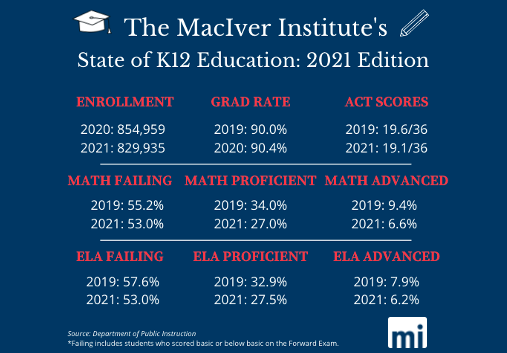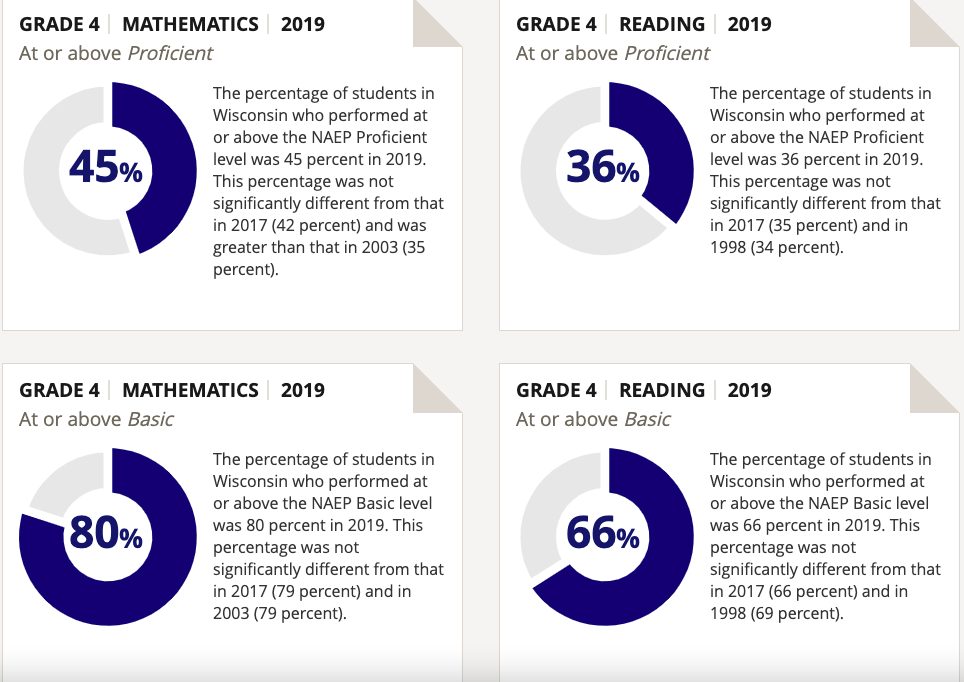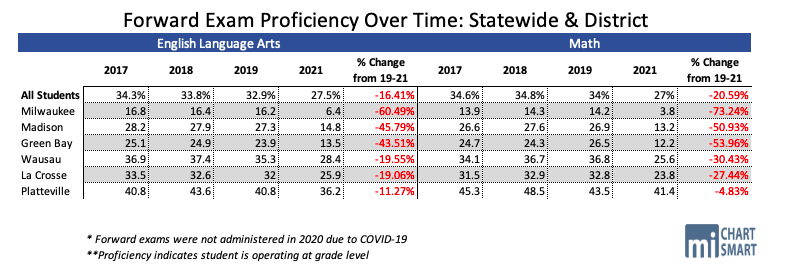
November 10, 2021

Last week, Governor Evers vetoed Senate Bill 454, a bill that sought to address the abysmal literacy rates in Wisconsin K12 schools. The bill would have required additional literacy tests to be administered to kindergarten students in an attempt to identify struggling students earlier on to provide them with the help they need to catch up. The bill also would have required that parents be notified of the results of their child’s test.

The National Assessment of Education Progress reports that 64% — two-thirds — of Wisconsin students are not proficient in reading, with 34% of Wisconsin students not even meeting the basic reading level.
As the most recent proficiency scores released from DPI reveal, Wisconsin students are failing miserably, with less than a third proficient in ELA or math. Without learning to adequately read at an early age, students face a huge disadvantage in their ability to learn in general and throughout their entire formal education.

In his veto message, Governor Evers argued that “I object to fundamentally overhauling Wisconsin literacy instruction and intervention without evidence that more statewide, mandatory testing is the best approach for our students, and without providing the funding needed for implementation.”
Chair of the Senate Committee of Education, Senator Alberta Darling (R – River Hills) said in response to the veto, “Amazingly, Governor Evers said in his veto message that ‘we must work – and quickly – to address reading proficiency…’ yet he declines to act on a bipartisan bill that will do just that,” Darling said, “As Superintendent and now Governor, it’s unfortunate, he’s all talk and no action.”
In their letter urging Governor Evers to sign the bill, Assembly authors Representatives Kitchens (R – Sturgeon Bay) and Thiesfeldt (R – Fond du Lac) said, “It shouldn’t matter whether you are a Republican or a Democrat – what this means for the future of our state should scare every single one of us. Research has shown that children who cannot read at grade level in fourth grade will struggle to graduate from high school and are far less likely to lead productive lives. About 85 percent of juvenile offenders are functionally illiterate, as are 70 percent of prison inmates. More than 75 percent of those on welfare have difficulties in reading the simplest texts.”